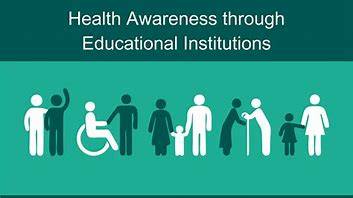Health education stands as a cornerstone in the pursuit of societal well-being, playing a pivotal role in empowering communities to make informed decisions about their health. Beyond merely disseminating information, effective health education initiatives foster a culture of prevention, resilience, and proactive health management. In this blog post, we delve into the significance of health education in bolstering the overall well-being of nations and the transformative impact it can have on communities.
Building Awareness and Knowledge
At its core, health education serves as a catalyst for raising awareness and disseminating knowledge about prevalent health issues, preventive measures, and available resources. By equipping individuals with accurate and up-to-date information, communities are empowered to make informed choices regarding their health behaviors, lifestyle habits, and healthcare utilization. Whether it's promoting healthy eating habits, encouraging regular physical activity, or advocating for preventive screenings, health education lays the foundation for proactive health management at the individual and community levels.
Fostering Health Literacy
Beyond the dissemination of information, effective health education endeavors to cultivate health literacy – the ability to understand, evaluate, and apply health information to make informed
decisions. By fostering critical thinking skills and empowering individuals to navigate complex health systems, health education enables communities to advocate for their health needs, engage in shared decision-making with healthcare providers, and adopt behaviors conducive to better health outcomes. Moreover, by addressing health disparities and bridging linguistic and cultural barriers, health education promotes equitable access to health information and services, ensuring that no community is left behind.
Promoting Behavioral Change
One of the most profound impacts of health education lies in its ability to facilitate behavioral change and promote positive health outcomes. By employing evidence-based strategies such as
motivational interviewing, social modeling, and behavior change theories, health educators can inspire individuals and communities to adopt healthier lifestyles, adhere to preventive measures, and seek timely healthcare interventions. Whether it's encouraging smoking cessation, promoting safe sexual practices, or raising awareness about mental health, targeted health education initiatives have the potential to catalyze transformative changes in behavior and attitude, ultimately leading to improved health outcomes and reduced disease burden.
Empowering Communities:
At its essence, health education serves as a catalyst for community empowerment, fostering a sense of ownership and collective responsibility for health outcomes. By engaging community members as active participants in the design, implementation, and evaluation of health education programs, initiatives can be tailored to address specific needs, preferences, and cultural nuances, thereby enhancing relevance and effectiveness. Moreover, by leveraging community assets, mobilizing social networks, and fostering partnerships across sectors, health education initiatives can harness the collective wisdom and resources of communities to drive sustainable change and foster a culture of health and well-being.
In conclusion, health education stands as a linchpin in the pursuit of national well-being, empowering communities to take charge of their health and fostering a culture of prevention, resilience, and empowerment. By building awareness, fostering health literacy, promoting behavioral change, and empowering communities, health education holds the potential to catalyze transformative changes in health outcomes and pave the way for a healthier, more vibrant future for nations worldwide. As we continue to navigate the complexities of modern healthcare, investing in robust health education initiatives remains paramount, ensuring that individuals and communities are equipped with the knowledge, skills, and resources to thrive in an ever-changing world.




No comments yet
Be the first to share your thoughts!